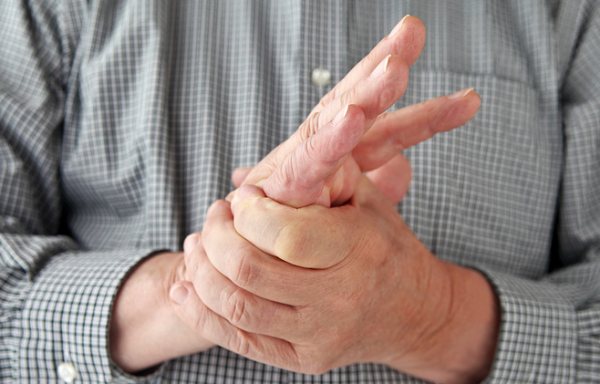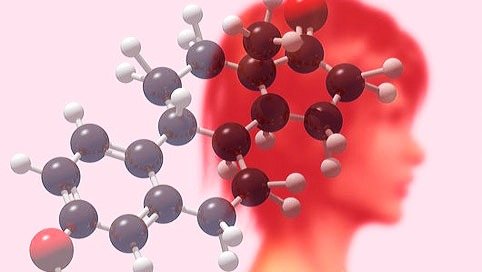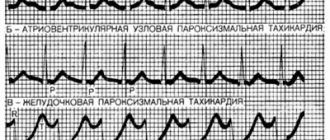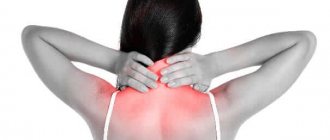Objective grounds
Itching is a sensation accompanied by the need to scratch the skin. There are several opinions about its occurrence:
- irritation of certain pain receptors;
- occurs independently under the influence of mediators - histamine, serotonin, adrenaline, opioids and others.
The second theory is supported by the fact that itching sensations appear only in the superficial layers of the dermis and the mucous membranes adjacent to it, while pain occurs anywhere in the body. In addition, pain and itching can occur in isolation from each other.
Itching can be localized or spread throughout the body. Due to its occurrence, it is divided into:
- propriocevtive - appears due to a violation of the structure of the dermis;
- neuropathic – observed when the nervous system is damaged;
- neurogenic – without damage to the NS;
- psychogenic – mental disorders.
How can a nervous breakdown manifest itself physically?
Transient physiological discomfort symptoms that develop on a nervous basis can be observed in many people. However, if pain due to neuroses lasts a long time and is pronounced, then in this case the disease is in the chronic stage and you should consult a specialist.
A person in a nervous state is characterized by:
- frequent tearfulness;
- increased sensitivity to stressful situations (when a person reacts too aggressively to minor stress or falls into despair);
- touchiness;
- rapid fatigue, characterized by decreased concentration, memory, and thinking abilities;
- sleep disturbance;
- autonomic dysfunctions;
- intolerance to bright light, loud sounds, temperature changes;
- decreased sexual desire.
Very often with neurosis there is a headache, which has a different nature of occurrence. The same goes for symptoms. According to statistics, more than 50% of patients have this clinical manifestation. This disease of the nervous system worsens the quality of life, deprives a person of the opportunity to live fully and enjoy every day.
There are three types of neurosis: hysteria, neurasthenia and obsessive-compulsive neurosis. With each of them, a person may feel heaviness and compression in the head, pulsation in the temples. It is very important to contact a specialist in time. Under no circumstances should you engage in therapy on your own or suppress the symptoms with painkillers.
Pain in the heart with neurosis is also a common condition; in parallel, the patient may feel shortness of breath, increased heartbeat, dizziness, sweating, fear, weakness, increased anxiety, apathy towards everything and mental fatigue.
Signs of cardioneurosis also include intrusive thoughts. The sick person begins to panic that he may have a heart attack, which will be fatal for him. The heart may feel aching pain, tightness, tingling and heaviness.
It should be remembered that stomach pain, back problems or intercostal neuralgia may radiate to the heart area. It is very difficult to identify the exact location of the pain yourself, so you will need to undergo a series of examinations for diagnosis.
Stressful situations, increased mental stress, exhaustion of the autonomic nervous system lead to stomach pain, which is also characteristic of neurosis.
At the same time, the following symptoms may be felt:
- flatulence;
- pain;
- spasms;
- belching;
- nausea;
- heartburn;
- rumbling.
The neurotic nature of the disease makes itself felt differently than gastroenterological ailments. For example, a person is able to feel emptiness in the stomach a few minutes after eating. Or after a couple of sips you may feel a full stomach. The patient begins to use drugs that are advertised everywhere and self-medicates. But the problem lies elsewhere. It is important to find the cause of the disease in time in order to begin treatment correctly and in a timely manner.
With neurosis, pain and discomfort in the joints and muscles may also be observed. When nerve roots are pinched, tissue conductivity drops significantly, and impulses to organs and muscles are accordingly poorly received.
Neuroticism in this case is manifested by tension in the lower back and neck, nervous tics, tremors, and various types of pain. These unpleasant sensations are accompanied by weakness, poor appetite, apathy, irritability, and increased fatigue.
Neuroses are characterized by discomfort and pain in different parts of the body, which deprive a person of mental balance. There are common signs for all manifestations. This is a state of anxiety, fear, irritation, pain. It is very difficult to live like this. Therefore, the patient has to go to different specialists to find the main cause of his ailments. And only after various types of diagnostics can the patient see a psychotherapist.
An experienced specialist will be able to make the correct diagnosis and prescribe treatment. Therefore, you should not waste precious time on self-medication by postponing a visit to the medical center. Therapy must be comprehensive. This is the only way to quickly return to the normal rhythm of life.
As a preventative measure, you should reconsider your lifestyle. It is very useful to do physical exercise and walk in the fresh air. It is important to monitor your diet, limit the consumption of unhealthy foods, and eat more fruits, vegetables and herbs.
A chocolate bar and relaxation techniques will help calm your nerves. But you can’t rely heavily on coffee, because caffeine will only worsen the irritating factor. To improve your psycho-emotional state, it is useful to listen to good music, it is advisable to avoid stressful situations and learn to react calmly to everything.
Most neurotic patients complain of back pain.
Burning sensation and its origin
A burning sensation in the body and limbs manifests itself in the form of tingling, a sensation of heat. It is constantly present throughout the day or has a wave-like character, but, as a rule, does not bother you at night.
The appearance of this symptom is facilitated by damage to the peripheral nerves. This is observed, for example, in diabetes mellitus . In this case, the burning sensation is concentrated primarily in the extremities, followed by tingling and numbness.
Sciatica is an inflammation of the sciatic nerve, accompanied by a burning sensation in the legs up to the foot.
With multiple sclerosis, the burning sensation is combined with tingling. Such an alliance extends to the limbs. One should be wary of their simultaneous occurrence with problems of speech and coordination.
Radiculopathy is damage to the nerve roots of the spinal nerves. In this case, a pathological feeling of heat also occurs in the arms and legs.
Dangerous is the appearance of a burning sensation in one half of the body. Along with other signs, such as unclear speech, headache, blurred vision, delirium, hallucinations, it can be a sign of a stroke .
Heat in the legs often indicates vascular pathology .
Other conditions that can cause this sensation include:
- spider and snake bites;
- poisoning by chemical compounds;
- avitaminosis;
- calcium deficiency;
- burns.
Particular discomfort is caused by itching and burning in a woman’s intimate area (vagina, vulva and perineum).
A burning sensation in the vagina, along with dryness, are manifestations of menopausal changes or atrophic inflammation . If the cause of the burning sensation is various kinds of discharge, then this indicates candidiasis, inflammatory processes or sexually transmitted diseases . Moderate itching in the vaginal area may indicate an allergic reaction to latex or medications.
The discussed symptoms in the vulva (external genitalia) also appear against the background of sexually transmitted infections .
Other reasons may be:
- lice;
- eczema and mycoses;
- tumor-like formations;
- helminthic infestations;
- kidney and liver diseases.
The perineum includes the area around the genitals and anus. The occurrence of unpleasant sensations in it indicates the presence of such conditions :
- helminthic infestations;
- allergy to powder or linen;
- haemorrhoids;
- rectal tumors;
- systemic diseases;
- sexual infections;
- herpes, candida;
- incorrect hygienic approach.
Nervous itching, scabies: symptoms, treatment – Website about
Itchy skin due to nervous stress has irreparable consequences. It is important to recognize the symptoms of pathology in time and seek medical help.
How to recognize and treat nervous scabies
Nervous scabies, or skin itching on a nervous basis, is a pathological condition characterized by irritation of the skin due to excessive stimulation of the nervous system (hereinafter referred to as NS).
Itchy skin due to nervous stress
This condition usually develops against the background of severe nervous shock. The body strengthens its defenses, which sometimes do not work properly.
Causes and symptoms
There are many factors that can trigger the development of nervous scabies, and, unfortunately, no one is immune from them. Constant stress at work, a troubled family life, strong worries about a loved one, the death of a relative - all these life events can lead to nervous itching of the skin.
How to recognize the disease:
- severe itching occurs, which only gets worse due to stress;
- the appearance of rashes and inflammation of the skin.
Diagnostics
First of all, the specialist will examine the patient. More often, due to nervousness, the patient scratches the rash vigorously, until wounds appear. The state is either depressed or excited and uncontrollable.
Afterwards, he will ask for complaints, since nervous itching bothers not only a certain area of skin on the body, but also in the anal area.
Laboratory methods to confirm the diagnosis include skin scraping and an allergy test.
How to treat
The disease will not go away on its own. It is necessary to begin treatment, which consists of the following:
- Nutrition adjustments.
- Normalization of the nervous system.
- Elimination of stress and nervous experiences.
- Treatment of symptoms.
To stabilize the nervous system, the doctor first of all prescribes sedatives and antidepressants that will help overcome anxiety and stress.
Popular drugs are:
- Bulgarian valerian;
- Novo-Passit;
- Persen.
You should not overuse antidepressants; the medicine can be addictive.
Antihistamines will help relieve itching and inflammation of the skin. Among them are:
- Suprastin;
- Cetrin;
- Zyrtec;
- Erius.
- Admission is prohibited for pregnant women, small children and people with chronic diseases.
- To eliminate unpleasant symptoms, topical medications are prescribed, which include glucocorticoids.
- It could be the following ointments:
- Lokoid;
- Diprosalik;
- Photocort.
When treating itchy skin, you may also need antiallergic drugs - Fenistil or Gistan.
To improve the functioning of the body's defenses, you need to take vitamins and minerals. Vitamin complexes include essential substances.
The best are considered:
- Invigorates;
- Vitrum Superstress;
- Neuromultivitis;
- Doppelhertz active magnesium;
- Stress Aid.
The diet should also be rich in fortified foods, protein and complex carbohydrates. It is also equally important to normalize healthy sleep.
Physiotherapeutic procedures can be prescribed as an auxiliary therapy.
These include:
- acupuncture;
- hypnosis;
- RMT (reflexive manual therapy).
In the most advanced cases, you will need the help of an experienced psychologist. His task will be to teach the patient to control himself in stressful situations and react calmly to everything.
Negative consequences
The negative impact of stress affects the body, especially during long-term recovery of the body. The NS begins to work unstably. A person becomes less resistant to the appearance of depression, irritation and easily enters into conflicts.
Duration of therapy
The duration of treatment will directly depend on the severity of the condition and the main provoking cause, which is important to eliminate during treatment. Therapy can take 2-3 months or more than a year.
Neuroses and consequences for the body
Neuroses develop against the background of a nervous disorder and a long-term depressed state. This is a group of diseases of the nervous system that cause irreparable harm to the body.
The quality of life and productivity decrease, various phobias appear, and the idyll in family life is disrupted.
But the main danger is the development of chronic diseases, memory impairment and the development of causeless aggression. Against the background of neuroses, diseases of the gastrointestinal tract and cardiovascular system often develop.
To avoid the appearance of nervous scabies, you need to spend more time in fresh air, sleep at least 7 hours and surround yourself only with people with positive emotions. A balanced and calm person is much more stress-resistant and less susceptible to various diseases.
Source:
Scabies due to nerves, itching of the body skin from nerves
Nervous scabies is the body’s response to constant stress, anxiety, tense situations or depression. Women and children especially often face this problem, as they are more emotional.
It is extremely difficult to eliminate itchy skin on your own. In this case, the patient needs not only medications, but also psychological help. It is advisable to consult a doctor if you notice the first symptoms of scabies.
Lack of treatment leads to the disease developing into a chronic form.
Nervous itching usually occurs against an emotional background
In this article we will talk in detail about the symptoms, causes and methods of treating nervous scabies.
Why does itching occur due to nervousness?
Severe emotional shocks, stressful environments or depression weaken the human immune system. Because of this, it begins to have a negative effect on its own cells. A malfunction occurs in the body, which leads to tingling and burning of the skin. The patient has itching in different parts of the body: face (nose), legs.
The risk group includes people who have phobias or react too emotionally to various events. However, nervous scabies can also appear in a healthy person, for example, due to a tense situation at work or at home. Doctors believe that skin irritation can occur in anyone. In this case, the body’s resistance to stress plays a significant role.
Nerve scabies are characterized by the following symptoms:
- burning and tingling of the skin;
- redness;
- rash (in the form of small blisters filled with liquid);
- edema;
- lack of performance, malaise.
Symptoms of the disease usually worsen in the evening and at night. In the advanced form, the patient experiences: elevated temperature (more than 38 degrees), trembling and weakness.
The above symptoms of the disease can easily be confused with signs of another skin disease (dermatitis, urticaria, etc.), so it is better to seek help from a doctor. At the appointment, try to describe in detail how you feel.
It is not recommended to self-diagnose or take medications. This will only weaken the immune system and also lead to various complications.
Burning and tingling of the skin are clear signs of nervous scabies.
Principles of therapy
Usually the patient is prescribed drugs that have a positive effect on his emotional state and immunity. If you consult a dermatologist at an early stage of the disease, you can eliminate the itching sensation with the help of mild sedative medications. They do not cause side effects, as they consist of natural plant ingredients.
The following sedatives will help effectively eliminate itching of the skin due to nervousness:
- herbal teas (with lemon balm, mint, chamomile, thyme, etc.);
- motherwort;
- valerian;
- medicines containing hops, peony or mint.
It is advisable not only to take medications, but also to improve your lifestyle. Try to isolate yourself from stress, devote more time to rest, sleep and walks in the fresh air. Also during treatment it is necessary to get rid of bad eating habits.
For more severe cases, you will need to take not only sedatives, but also antidepressants. Additional treatment is a visit to a psychiatrist. Usually, the patient only needs a few treatments to get rid of the problem. Dermatologists recommend using the following antidepressants for treatment: Fluoxetine, Citalopram, Venlafaxine.
In order to eliminate skin itching from nerves, burning and tingling, the patient is prescribed medications for external use. The most effective way to eliminate irritation are ointments that contain glucocorticoids (Panthenol, Miconazole, Prednisolone, Sinalar, Triacort).
The course of treatment is approximately 2 weeks. If after prolonged use of the ointment the irritation does not go away, then consult your doctor for help. The ointment is applied to clean skin twice a day (immediately after a bath or shower).
Contraindications – tuberculosis, syphilis, acne, pregnancy, fungal or bacterial diseases. Before using medications, be sure to read the instructions.
Also, to quickly eliminate unpleasant symptoms, antihistamines are used (together with ointments and antidepressants). Doctors recommend using Suprastin, Claritin, Erius or Tavegil.
Antihistamines combined with ointments will help relieve itching, burning and tingling sensations
These remedies are aimed at eliminating swelling, inflammation, itching and rash. Many of them are safe and do not cause serious side effects or complications, but you should not use them without the advice of a doctor. It is also prohibited to use medications for pregnant women, children and people with chronic diseases.
During treatment, it is advisable to avoid visiting the pool. Its water contains chlorine, which can only worsen the skin condition. Also try to reduce your time in the bathhouse and sauna to once a week.
Traditional medicine against nervous skin irritants
You should not use folk remedies as a separate method of treatment. They can only be used in conjunction with psychological help and medications.
Recipes
Vinegar solution. Mix apple cider vinegar and water in equal quantities. Soak a bandage in the resulting solution and wipe the affected areas of the skin with it. It is advisable to carry out this procedure immediately after a bath or shower. Healing baths.
Take any calming herbs (chamomile, lavender, oak bark, lemon balm, sage, etc.). Add approximately 100 grams of dried plants to a warm bath. You can also use essential oils.
After your bath, apply a small amount of olive oil to the affected areas of the skin.
Preventive measures
Regular yoga classes help relax and keep your body in good shape.
It is much easier to prevent the appearance of scabies from nerves than to treat it for a long time. To prevent the development of itchy skin, follow these recommendations:
- Breathing exercises, yoga or meditation. Do something daily for 20-30 minutes. They help improve the nervous system and relieve tension. Get at least 7 hours of sleep. Also, do not sleep too much (more than 9 hours).
- Try to move more, devote time to sports and meditation.
- Strengthen your immune system regularly.
- Use essential oils and herbal teas to relieve stress and calm yourself.
Also try to lead a healthy lifestyle. Proper nutrition and the absence of bad habits will only have a positive effect on your body.
Source:
Psychosomatic causes of scabies, opinions and recommendations of psychologists - Psychology
Scabies is a skin disease caused by the activity of subcutaneous mites. Manifested by itching and burning. Infection occurs through direct contact with a sick person or his personal belongings. However, the development of the disease is also influenced by the psychological stability of the infected person. Let's take a closer look at the psychosomatics of scabies.
Source: https://mii-info.ru/nevroz/zud-na-nervnoj-pochve-chesotka-simpotmy-lechenie.html
Psychogenic nature of burning and itching
The term “psychosomatics” is quite common these days. It is defined as the occurrence of bodily manifestations based on psychological factors.
If during the examination of the patient it is not possible to find objective reasons causing such impressions, the matter is most likely in the mental sphere of the person. Or rather, in its negative manifestations.
For example, itching and burning sensations in the body develop against the background of a stressful situation . If it was a one-time problem, then after it is eliminated, the unpleasant manifestations also disappear.
As for chronic stress , these symptoms may persist or even intensify. This, in turn, increases nervous tension and aggravates the situation. It turns out to be a vicious circle.
There is an understandable explanation for the appearance of skin paresthesias in psychological disorders. With negative emotions, the body increases the production of serotonin and dopamine. It is these neurotransmitters that provoke the occurrence of itching and burning, usually without visible skin elements. But sometimes a rash, dryness and peeling may appear.
Skin neurosis
Neurosis is a disease of the human nervous system, caused by a whole complex of neurological problems, most often a constant stressful state, which tends to last for a long time. In the real world, neurosis is a fairly common disease, and it is characteristic not only of adults, but also of children. Neurosis is not only a disease of the nervous system, but also affects all functions of the body. Therefore, this disease plays an important role in the disease of various organs and systems.

Human skin is precisely the organ that can be the first to indicate the appearance of neurosis. You feel pain when touched in any part of the body, a rash or red spots appear that itch, or a burning sensation is felt - it is worth assuming that it is neurosis. Of course, these signs can also appear in internal diseases, but often the cause lies in a nervous disorder. Why does the skin hurt during neurosis?
Senestopathies
Burning, itchy feelings provoked by mental disorders are classified as simple thermal senestopathies.
Senestopathies are a variety of unpleasant, intrusive and exhausting impressions that are concentrated on the surface or inside the body. This concept was first learned about in 1907 thanks to the scientists P. Camus and Dupre.
The peculiarity of this condition from true burning and itching is the rich and elaborate way of describing them. For example, “there is a fire in the head”, “the chest is on fire”. The localization is characterized by an unusual presentation: “itching in the stomach area”, “a vessel in the abdomen is pulsating”.
Such episodes can be isolated, constant or paroxysmal. Sometimes they are so intrusive that they literally drive the patient crazy.
Their characteristic feature is tactile hallucinations. They often manifest themselves in terms of itching and tingling. A person claims that bugs or mites are crawling under his skin. In some cases, he even sees them, or it seems to him that crumbs or sand are stuck to his body.
Itchy and “hot” sensations in neuroses
Neurosis is a psychogenic nervous disorder associated with emotional, behavioral and somatovegetative disorders. What distinguishes it from other mental illnesses is that the patient is fully aware of the severity of his condition and strives to get rid of it.
A distinction is made between mental and physical neurosis. Physical neurosis, along with psychogenic disorders, also has physical symptoms. There are several varieties of it.
Skin neurosis is manifested by burning and itching of the skin against the background of its bluish, marbled tint. The skin of the joints and legs becomes rough and tightens.
This condition is characterized by changes in sensitivity. It can be reduced or, conversely, increased when unpleasant sensations appear at the slightest touch. With physical neurosis, the skin itches and “burns” in certain areas or throughout the body, becomes wet or dry. Tactile hallucinations are characteristic.
The patient is so bothered by these manifestations that he scratches his body until it bleeds, leaving wounds and abrasions.
The reasons for this condition are:
- mental and physical stress;
- stress;
- conflict situations;
- brain injuries;
- hormonal disorders;
- infections.
Muscular neurosis . This condition is preceded by physical overexertion, as well as prolonged monotonous activity.
The disease is accompanied by a burning sensation throughout the body or in certain areas against a background of muscle tension and spasms. Another characteristic symptom is pain in the chest, neck and face.
Neurosis of the genital organs . The main manifestations of this syndrome are itching and burning in the genital area, which occur after sexual intercourse, during the menstrual period and for a number of other reasons.
The culprits of the disease are:
- mental infantility;
- chronic fatigue;
- conflicts in the family.
Itching in mental illness
Itching in mental illness is common. Neurotic excoriations, tactile hallucinosis and so-called psychogenic itching are diagnosed by exclusion. Tactile hallucinosis can be a monosymptom of hypochondriacal psychosis, neurotic excoriations can be a manifestation of neurotic personality changes.
Tactile hallucinosis is more often observed in patients over 40 years of age, especially women. Itching tends to intensify in the evening and at night, with emotional stress; as a rule, it covers the entire skin, but may be limited to one area of the body, for example, the scalp. Patients talk about sensations on the skin reminiscent of moving, crawling, biting, and compare them with the crawling of insects, worms, etc. These sensations, according to patients, cause unbearable itching. Such a formed image of the presence of a foreign object on the skin without the presence of a real cause of sensation allows it to be interpreted as a hallucinatory image. A long course, the occurrence of hallucinations against the background of clear consciousness, persistent hallucinations that are prone to influxes and dominate over other psychopathological manifestations fit into the picture of tactile hallucinosis. During an influx of hallucinations, patients say that they are like in an anthill and many insects are running around their body. At the same time, they retain the consciousness that there cannot be any insects on their body. The sensations sometimes cause a feeling of horror; patients jump up, examine their body and, although they know that they will not find anything, they cannot resist these actions. In addition to itching and tactile hallucinations, patients experience irritability, insomnia, and decreased ability to work. Delusional ideas are exhausted by noting the presence of parasites in the skin at the time of an influx of hallucinations (dermatozoal delusion). The course of this syndrome is generally stable, but in some cases a slight wave pattern can be observed with a weakening or intensification of symptoms, but the syndrome does not become more complicated, and the condition remains unchanged for a long time. Sometimes patients resign themselves to their illness, endure it patiently, and only a new increase in the intensity of hallucinations and itching forces them to consult a doctor.
Clinical signs of psychogenic itching
- No visible manifestations of skin diseases.
- The itching is widespread or limited to some symbolic, significant area for the patient.
- Tendency to the appearance of lichenification in places where itching is localized (the so-called lichen simplex chronicus).
- The intensity of itching is closely related to the emotional status: it intensifies in stressful situations and conflicts.
- Sleep is rarely disturbed, with the exception of cases of anogenital itching.
- Patients often describe their sensations in bizarre, exaggerated ways.
- Objective signs of itching intensity do not correspond to the history, but sometimes deep excoriations can be observed.
- Itching is relieved by taking sedatives or antipruritic drugs, and is much less easily relieved by external means. Sometimes when taking sedatives, a paradoxical increase in itching is observed.
- Psychoneurotic traits are often observed: exaggeration of symptoms, abundance of complaints, verbosity, use of superlatives in descriptions, inappropriate answers, suggestibility, shirking work, unwillingness rather than inability to work - “retirement”? or ?rental? neurosis.
- The presence of deep excoriations, bizarre self-harm, and parasitophobia is more likely to indicate the presence of psychosis rather than neurosis.
Treatment of psychogenic itching
Treatment of patients with psychogenic itching who repeatedly visit various dermatovenerological institutions poses a big problem for dermatologists. It is noteworthy that patients in need of psychotropic treatment do not come to the attention of psychiatrists and are included in the group of dermatological patients. Meanwhile, to alleviate their condition, it is necessary to prescribe psychotropic drugs (for example, amitriptyline, melleril), which quite quickly leads to a reduction in tactile hallucinations and skin itching with normalization of general tone, sleep and restoration of working capacity.
T.V. Krasnoselskikh, E.A. Arabianskaya, K.N. Monaxov
www.medeffect.ru
Other mental and nervous disorders
It is worth noting that these unpleasant sensations in the intimate area also appear with other types of neurosis.
Here is a case described in psychotherapeutic practice. A young woman aged 22 went to a psychiatric hospital. Because of this, their sexual and marital life is destroyed, the couple is on the verge of divorce.
During the survey, it was found that the girl got married at the insistence of relatives at the age of 19. And her husband is 18 years older than her. She developed normally, and at the time of coming to the center she was physically healthy, including gynecologically.
Conclusion: hysterical psychopathy , a symptom of hysterical genitalgia. This symptom developed due to the girl’s negative attitude towards her husband and sex life in general. Pain and burning in the vagina in this case act as an unconscious pathological adaptation mechanism for avoiding sexual intimacy with the husband. The symptom was eliminated with the help of hypnosis, but the dislike of sexual relations remained.
Thus, in this situation, a burning sensation in the intimate area became a manifestation of exclusively mental disorders, despite physical health.
Vegetative-vascular dystonia can also be accompanied by sensations of heat and itching in the body. The reason for this is an imbalance in the functioning of the nervous system. This disorder leads to changes in cardiac activity, which is why the condition is often accompanied by a burning sensation in the chest. It is accompanied by other symptoms such as arrhythmia, shortness of breath, heart pain, pressure surges, dizziness and loss of consciousness.
Causes of the disease
The causes of the disease are very extensive, and it is impossible to say with certainty what exactly led to the disease. Sometimes it can be a whole complex of signs and external factors that lead to skin neurosis.
- Mental stress. You have a hard job where you need to do a lot of heavy mathematical operations, or you are a school or university student preparing for exams - such a load on the body can lead to fatigue, as a result of which a defense mechanism is triggered.
- Stress and nervous fatigue. There have been serious changes in your life or at work you constantly have to worry about the result - this is the most obvious reason for the development of nervous disorders.
- Chronic fatigue and lack of sleep. Of course, any body needs rest and a change of environment; if it is constantly deprived of sleep and rest, one can expect that problems with the nervous system will soon begin.
- Difficult family situation. In this case, this applies more to children. If they see their parents constantly arguing, quarrels and scandals occur with the use of insults or even physical violence, you need to understand that the child’s nervous system will most likely not withstand it and will require treatment.
- Infectious or chronic diseases that cause not only physical, but also nervous depression in a person.
- Hormonal imbalances.

What can itching and feeling of heat in the body lead to?
These symptoms are so uncomfortable that it is simply impossible to ignore them. All attention is concentrated on them, which is why a person becomes inattentive, absent-minded, disruptions appear in his professional activities, and his performance decreases.
Irritability and tension reach a peak state. Depression and nervous breakdowns are possible. Such overexertion leads to mental imbalance. The patient's sleep is disturbed and insomnia develops. As a result, during the day he feels exhausted and sleep-deprived.
Severe itching in the intimate area sometimes leads sufferers to the point that they use various objects that injure the mucous membrane and skin in this area.
Scratches on the skin and mucous membranes can become infected, inflamed and suppurate, spreading the process to larger areas.
Useful video
Are there tickling skin irritations and an unbearable feeling of irritation, but there are no obvious sources that could cause these problems? Often, this may indicate neurosis of the skin of the body. This may be due to protracted tensions and conflicts. The development of such difficulties is based on psychological problems that affect the general condition of the body.
In today's world, unfortunately, not only adults, but also children suffer from disorders of the central nervous system. Neurosis is a generalized name for various deviations provoked by moral factors, difficult circumstances and unrest, which are characterized by slight pronounced deterioration of the psyche, but at the same time the person does not suffer from anything.






